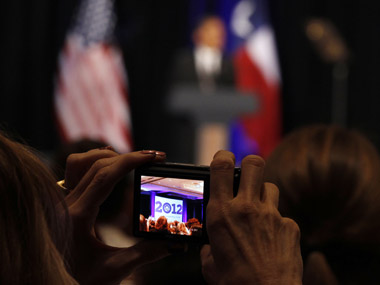Nothing seems to rise faster in the US than its massive mountain of debt, with one possible exception — the amount of money in US politics. Every election sees an arms race measured in dollars, as unions, corporations and rich supporters exploit the latest campaign finance loophole. Efforts to reform the campaign finance system in the US were turned back two years ago by the high court, which has steadfastly equated campaign contributions with the right to free speech protected by the US Constitution. The court decision is known by its case title Citizens United. In practice, it has flooded the US presidential elections with even more money than before. Political action committees (PACs) have long been a fixture of American politics, but the ruling opened the way for PACs to raise and spend as much money as they could, as long as they did not coordinate with candidates’ campaigns. It has given rise to the super PAC. By 20 January, super PACs had already spent $20 mn in the primary elections for the Republican Partyto choose their candidate for president. [caption id=“attachment_206414” align=“alignleft” width=“380” caption=" Apart from the sheer volume of money involved, half of Americans aren’t even aware of super PACs. Reuters"]  [/caption] Las Vegas casino billionaire Sheldon Adelson and his family have given more than $10 mn to the Winning our Future super PACthat backs Newt Gingrich. All of the major candidates are supported by super PACs. Hedge fund mogul John Paulson and investment banking director Edward Conard have both given $ 1mn to the Restore our Future super PAC that supports Mitt Romney. Not all of the super PACs support candidates. Some are created just to savage their political opponents. George W Bush’s former political strategist, Karl Rove, heads the American Crossroads group, which according to US television network ABC, “technically supports no candidate but rather spends money on ads savaging President Obama.” Texas home-building magnate Bob J Perry has given $7 mn to American Crossroads. President Barack Obama has been one of the best political fundraisers that the US has ever seen, not just by courting wealthy supporters of his party but also by using the Internet to tap small donations from hundreds of thousands of ordinary Americans. In direct contributions, he has a much larger campaign war chest than any of his possible Republican challengers. However, concerns that the super PACs could counter Obama’s fundraising advantage have led him to change his position and give his reluctant endorsement of a super PAC that will support his campaign and those of his fellow Democrats. The move is not without risk for Obama. As the Washington Post says:
“The move marks a clear political risk for Obama, who has staked much of his political career on opposition to the outsized role of “secret billionaires” and other monied interests while also attempting to win reelection in a struggling economy.”
Critics cry corruption Critics of the Citizens United ruling have claimed that it has dramatically increased the possibility of corruption with such large sums being raised. Washington Post columnist EJ Dionne recently said:
“Two years ago, Citizens United tore down a century’s worth of law aimed at reducing the amount of corruption in our electoral system. It will go down as one of the most naive decisions ever rendered by the court.”
Apart from the sheer volume of money involved, half of Americans aren’t even aware of super PACs. It’s difficult for your average journalist, much less the average voter, to keep up with the thicket of groups that grow up around a candidate in 2012. Regardless of whether a scandal has already happened, candidates and voters, who are aware of them, dislike them. Newt Gingrich hates them, although his candidacy has been supported by one of the most well-funded super PACs. Mitt Romney wishes they would “disappear”, according to the US newspaper, the Christian Science Monitor. However, until reform happens, the candidates will feel compelled to take part, holding their noses. John McCain, the Republican presidential candidate in 2008, who has long fought for campaign finance reform has condemned the super PAC system. He echoed Dionne in calling the ruling naive, and added:
“On both sides we have these incredible amounts of money. And I guarantee you there will be a scandal. There is too much money washing around politics. And it’s making parties irrelevant, by the way.”
He predicted that there would be a scandal, possibly involving foreign contributions. It might just take a major scandal to take place to stem this torrent of money. Until then, negative adverts funded by millionaires, big corporations, unions and interest groups will flood the US airwaves. Most of them will be on a continuum of nasty to absolutely poisonous. One thing is for certain, in 2012, the money race will be bigger and badder than anything US voters have ever seen.


)

)
)
)
)
)
)
)
)



